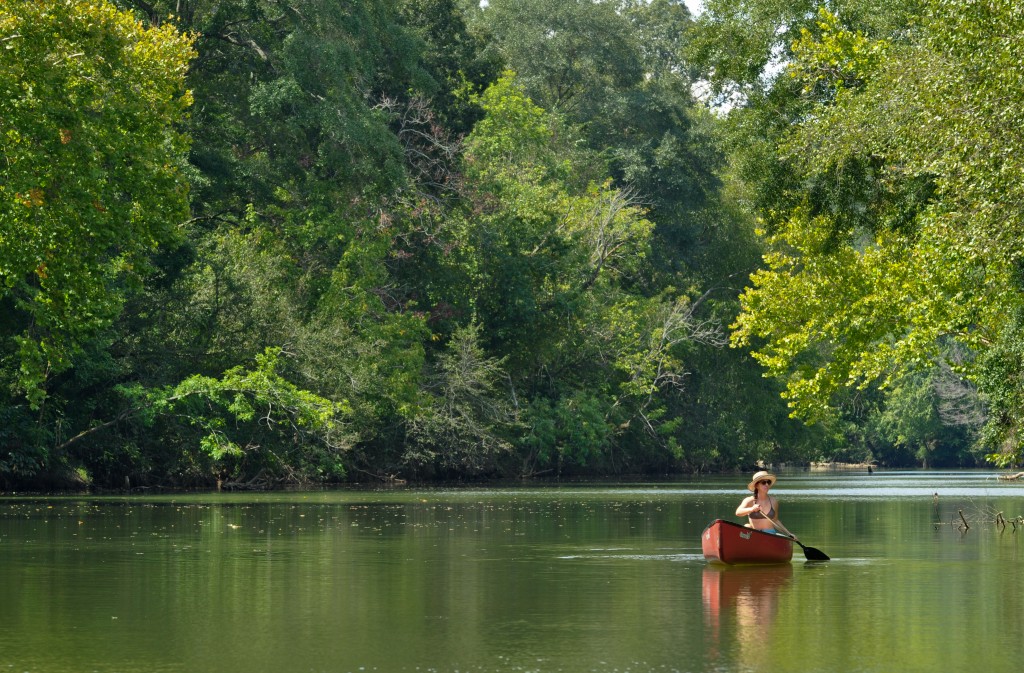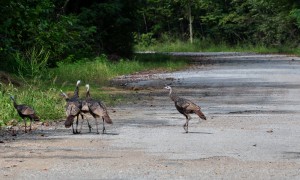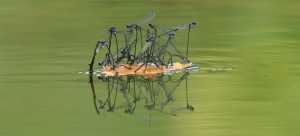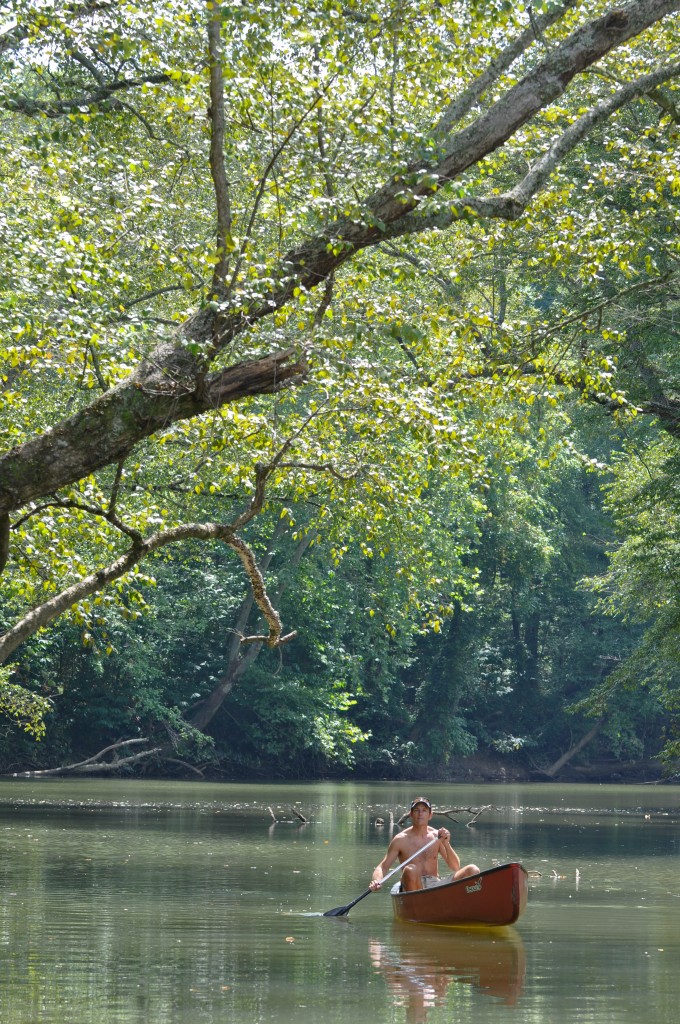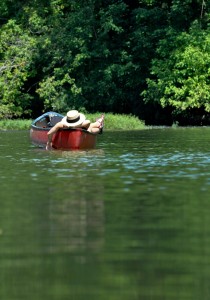When you tell your average Yankee to imagine the Deep South, what comes to mind is usually something filled with stereotypes culled from Hollywood. Growing up in the Seattle area, I can attest to this fact. What we know of places like Mississippi and Alabama are somewhat skewed toward the negative. So when, I’m in the South – the DEEP SOUTH – I’m always somewhat surprised when I have encounters with the natural world.
What? An alligator without a cross burning in the distance? A beautiful forest that’s not filled with pitchfork wielding hillbillies? I’ll be the first to admit, my perception is a form of geographic racism.
Out west, our rivers are noisy and full of teeth and foam. Boulders shift underwater. Torrents gouge hillsides and undercut skyscraper trees. But in Deep South, the feeling is much different. Rivers are sluggish. They take their time. Their flow is akin to the cadence of southern speech, and the way certain words roll of the tongue in a warm rhythm (like sedence not sen-tance).
The Little Cahaba River is a good example. For 190 miles, it weaves through rolling central Alabama. It doesn’t seem to be in a big hurry. Quietly, it drifts across the state – a cool refuge in a sea of humidity.
A river snob from Seattle would never guess that this meandering line of blue contains the largest diversity of fish species per mile than any river in the country. Or that tiny freshwater snails and mussels are as common as gravel. Clumps of green Cahaba lilies thrive in communities providing refuge for exotic frogs and other slippery critters.
We drift in our bright red canoe. We listen to the sounds of blue herons belching from tree snags and sneak up on dragonflies mating on a single leaf. The September water is warm enough for swimming – another difference between western rivers where the water is so cold it sucks the air from your lungs.
The DEEP SOUTH is full of wonders like this. Maybe not big national park big, but found in surprising little pockets of wonder. You just have to ignore the stereotypes to get there.
